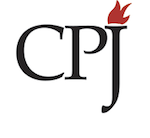North Korea is the second most-censored nation on earth, according to a new ranking by the Committee to Protect Journalists.
For anyone that knows North Korea or has been paying attention to press freedom studies and rankings, the news hardly comes as a surprise.
The government has complete control over the news media, which is limited to a handful of outlets that all report and reflect the official viewpoint.
In North Korea, 9.7 percent of the population has cell phones, a number that excludes access to phones smuggled in from China. In place of the global Internet, to which only a select few powerful individuals have access, some schools and other institutions have access to a tightly controlled intranet. And despite the arrival of an Associated Press bureau in Pyongyang in 2012, the state has such a tight grip on the news agenda that newsreel was re-edited to remove Kim Jong Un’s disgraced uncle from the archives after his execution.
North Korea had ranked as the worst country for press freedom — a dubious honor now enjoyed by Eritrea — in a 2006 survey but when the organization published an updated list in 2012 it moved North Korea up a spot to second-worst.
At the time, the group said that was due to what it called “signs of change.”
Ruling elites have access to the World Wide Web, but the public is limited to a heavily monitored and censored network with no connections to the outside world. While The Associated Press opened a Pyongyang bureau in January 2012 staffed with North Koreans, the AP wasn’t granted its own Internet connection and the correspondents have no secure line of communication. A Japan-based media support group, Asiapress, has been giving North Korean volunteers journalism training and video cameras to record daily life in the North. Downloaded onto DVDs or memory sticks, the images are smuggled across the porous border with China and then sent to Japan for broader distribution.
While North Korea hasn’t moved back into the bottom position, perhaps CPJ’s optimism was a little bit of wishful thinking.
Elites do continue to enjoy access to the Internet and illicit media continues to flood over the borders, but the government has shown no signs of any change in the way it handles news dissemination or the freedom it grants information inside the country.

